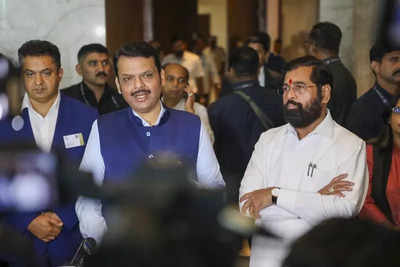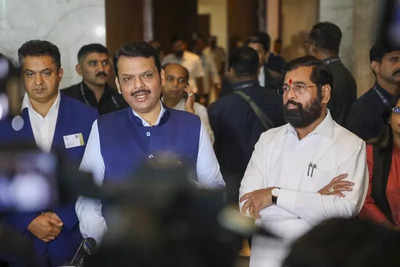Chhatrapati Sambhajinagar: A waqf inquiry panel report, which was reduced to ashes in the 2012 fire at Mantralaya in Mumbai before being recompiled and submitted in 2015, is at the centre of Maharashtra govt’s plans to act on encroachments and irregularities in waqf land dealings.
The retired district judge ATAK Shaikh inquiry commission, which was appointed in 2007, submitted its report in 2011 making some scathing observations about the approach of the then state waqf board CEO, officials, members and even various govt departments to the inquiry proceedings.
The original report, along with at least 12 bundles of original documents, was lost in the Mantralaya fire.
Now that the Waqf (Amendment) Act, 2025, has come into force from April 8, CM Devendra Fadnavis has said state govt has the ATAK Shaikh commission report and will use it as a reference point to act against encroachments and irregularities in waqf land deals. At the recent budget session of the state Assembly, Fadnavis said the govt would table an action taken report regarding the commission’s recommendations.
THE REPORT AT A GLANCE
The ATAK Shaikh inquiry commission scrutinised 114 complaints relating to waqf land in Mumbai, Pune, Chhatrapati Sambhajinagar, Nashik, Ahilyanagar, Beed, Jalna, Jalgaon, Nanded, Dharashiv, Parbhani and Satara districts and identified specific violations in each of the complaints.
The commission had six-point terms of reference for the inquiry — the first three being: (1) To prepare district- and area-wise descriptions of all properties registered as waqf, (2) To determine the number and area of properties that have been encroached upon, and (3) To ascertain which properties are in the possession of the waqf board versus those illegally held by individuals. The commission stated in its report that it could not check these three aspects for want of necessary resources and cooperation from the officials concerned.
The panel, however, was able to complete the remaining three terms of reference i.e. (4) To examine the legality of transfers, developments, or creation of third-party rights over waqf properties, (5) Propose a scheme to ensure smooth, proper, and revenue-generating management of these assets and (6) Fix responsibility on those accountable for illegal transfers or developments.
After it was placed in the Maharashtra Assembly in March 2015, then minorities development minister Eknath Khadse had said 70,000 acres of the 1,00,000 acres waqf land in the state had either been encroached upon or sold or transferred illegally. A probe in these cases was handed over to CID.
TOI called ATAK Shaikh for his comments, but he refused to speak. Those associated with the inquiry defended their work. Congress’ former minorities affairs minister Naseem Khan said, “State govt has done nothing about the commission’s report in the last 10 years despite documented evidence of encroachments and recommendations to deal with the same. There is no denying the waqf land encroachment as the report states. It named several people. Govt should act on the report’s recommendations.”
A recurring finding of the report is the sheer unwillingness of senior officials and the waqf board to cooperate with the commission. It details how forged documents legitimised illegal transfer of property and masked the true extent of the financial loss to the public coffers.
The report mentioned that cases from various districts consistently point to a deliberate pattern of fraudulent practices, suggesting that the misappropriation of waqf land has been both systematic and well-orchestrated. The inquiry revealed that cases involved falsified no-objection certificates, doctored affidavits, and tampered land records.
Maharashtra Waqf Liberation and Protection Task Force president Saleem Mulla said: “There is a desperate need to make waqf members, chairman, waqf officials and Mutawallis accountable for the misappropriation and mismanagement of the waqf properties and make them face criminal cases, for their acts, if any, violates the Act.”
In addition to legal reforms, the commission has suggested a wide range of administrative and social interventions to safeguard waqf assets and restore transparency. NCP (SP)’s Rajya Sabha member and former minister Fauzia Khan, who is also a member of the Maharashtra state board of Waqf, said: “There is no hope of this govt having good intentions when it comes to waqf properties. It has been a decade that this ATAK Shaikh report and many reports related to Muslims have been submitted. None of the essential recommendations have been acted upon.”
CORRECTIVE MEASURES
The report states that efforts to remove encroachers have failed to yield desired results, as out of 1,088 cases pursued by the waqf board, eviction orders were passed only in 21 cases. As a corrective step, Maharashtra govt has floated a tender to carry out a GIS-based mapping of the waqf properties.
State waqf board chairman Sameer Kazi told TOI: “We are doing our best to save waqf properties. I am of the view that the recommendations of the ATAK Shaikh commission, which are in the interest of waqf, should be implemented. We are also taking steps to survey all waqf properties and prepare a record of the same.”


